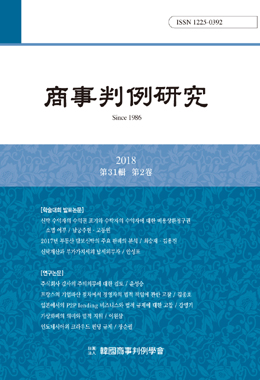주식회사의 감사에 대해서는 이사의 선관주의의무를 준용하는 규정만을 상법에 두고 있다. 감사의 경우와 달리 감사위원회위원은 이사의 자격을 가지고 있으므로, 이사의 주의의무와 충실의무, 경업금지의무, 자기거래 제한, 회사의 자산 및 기회 유용금지의 적용을 받는다.
감사와 감사위원회는 모두 상법상 주식회사의 감독기관이다. 감사의 감사범위에 대해서는 논란이 있으나, 모두 회계감사권 이외에 업무감사권을 가지고 있다. 감사가 회사의 감독기능을 수행하면서 얻은 정보를 이용하여 회사와 이해상충 행위를 한다면 공정한 감독기능을 수행하도록 한 목적에 반한다. 감사의 감독기능의 공정성을 도모하기 위해서는 선량한 관리자의 주의로서 업무를 성실히 수행하는 것만으로는 부족하고, 회사와 감사 개인의 이익이 상충되는 경우에는 회사의 이익을 개인의 이익보다 우선시하여 회사에 대한 충실한 업무수행 즉 충실의무의 이행이 요구된다.
이러한 측면에서, 감사가 업무집행권이 없다는 이유에서 이사의 선관주의의무만을 준용할 것이 아니라, 감사의 경우에도 이해상충 행위를 규율하기 위하여 선관주의의무 이외에 충실의무 및 경업금지, 회사와의 거래 제한, 회사의 기회 및 자산 유용금지를 명시적으로 준용할 필요가 있다. 이렇게 할 때, 감사와 감사위원회위원이 모두 상법상 감독기관으로서 동일한 주의기준과 행위기준에 따라 업무를 수행하게 된다. 감사를 두는 경우나 감사위원회를 두는 경우나 감독업무와 관련해서는 모두 동일한 수준의 의무가 부과됨으로써 어떠한 감독기관을 두느냐에 따라 의무의 정도가 달라지는 것을 방지하고, 이를 이용하려는 회사의 기회주의적인 결정을 방지할 수 있다. 이질적인 두 가지의 감독기관을 상법에 규정하고 있더라도, 입법론상 감독과 관련한 이해상충 행위에 대해서는 동일한 수준으로 규율할 필요가 있다.
Regarding a statutory auditor’s duty of care, the duty of care of the directors applies mutatis mutandis to the statutory auditor in the Commercial Code of Korea. Unlike the statutory auditor, the members of the audit committee are qualified as directors, so they are subject to the fiduciary duty of the directors, duty of noncompetition, restriction of self-dealing, prohibition of usurpation of corporate opportunity as well as the duty of care.
The statutory auditor and the audit committee are both supervisory bodies of the corporation under the Commercial Code of Korea. There is a controversy over the scope of auditing, but its supervisory function is similar in that it oversees legality and validity. If the auditor engages any transaction in a conflict of interest with the company while performing the supervisory function of the company, he or she is against performing a fair supervisory function. In order to ensure the fairness of the supervisory function, it is not enough just to fulfill his or her duty of care. If the interests of the company and the auditor are conflict with each other, it is required to fulfill the fiduciary duty of loyalty as well.
In this respect, in the case of statutory auditors, in order to regulate conflicts of interest, it is necessary to recognize the prohibition of competing ventures, the restriction of self-dealings, and the prohibition of the usurpation of the corporate opportunities and asset as in the case of directors. In addition to the duty of care, it is necessary to explicitly apply the fiduciary duty of loyalty, duty of noncompetition, restriction of self-dealing, prohibition of the usurpation of corporate opportunity and assets. In doing so, both the statutory auditor and the audit committee will be required to perform their duties in accordance with the same standards of care and the same standards of conduct as corporate supervisory bodies. The same level of obligation will be imposed on the statutory auditor and audit committee, and thereby preventing any imbalance in the degree of obligation between the supervisory bodies and preventing opportunistic decisions can be achieved. Even if the two different supervisory bodies are specified in the Commercial Code of Korea, it is necessary to regulate them with the same level of standard for conflicts of interest related to supervision.


